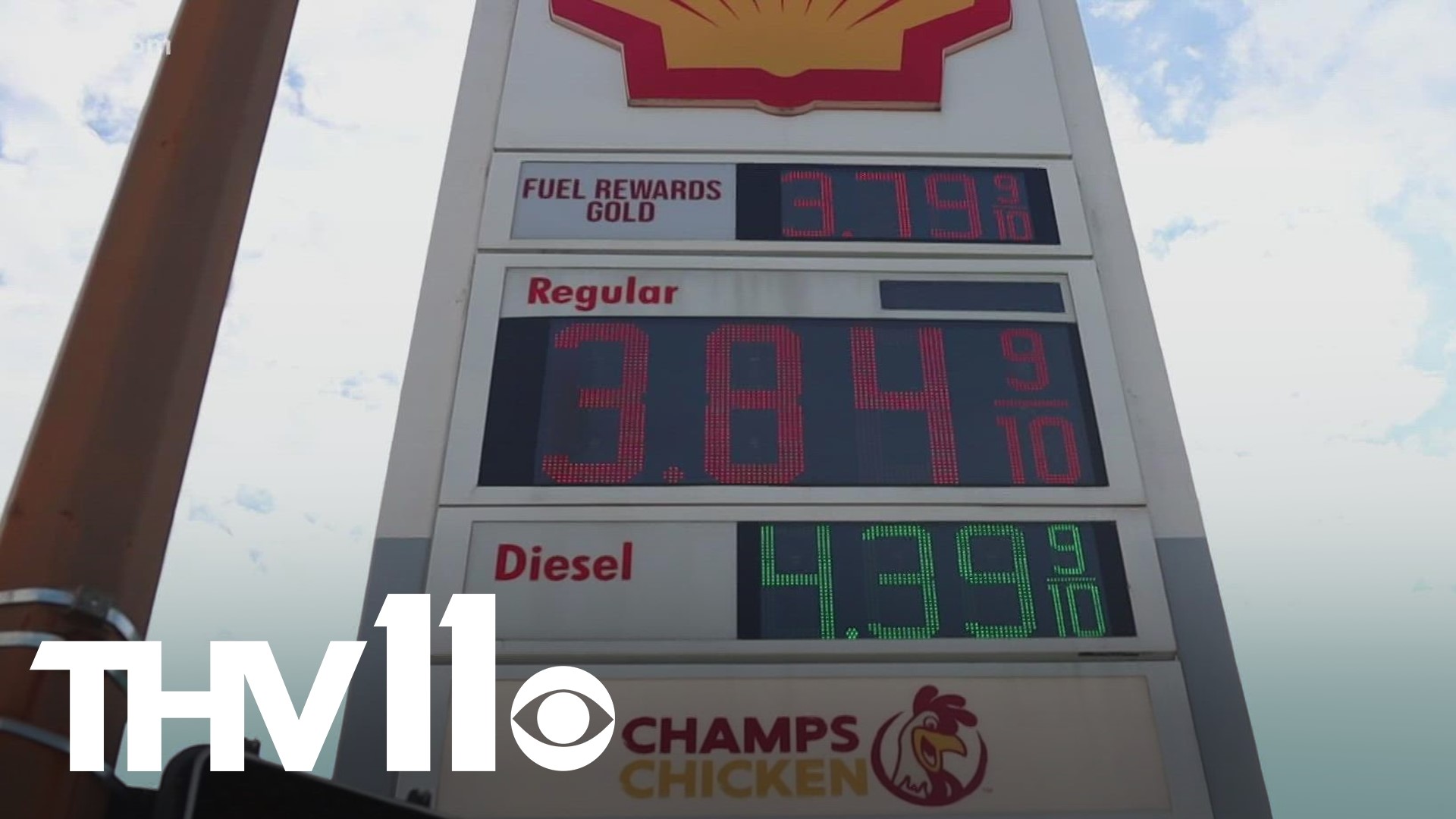LITTLE ROCK, Ark. — In the days since Russia's invasion of Ukraine, oil prices have skyrocketed to their highest levels in over a decade. The national average surpassed the four dollar mark Monday for the first time since 2008.
This as Arkansas currently sits at $3.71 per gallon on average-- a more than 50 cent increase in just the last two weeks.
Some drivers are taking the price increase personally, sharing thoughts like, "It hurts my feelings a little bit," and "I'm like wasting more gas looking for cheaper gas!"
Arkansas Economic Development Institute Chief Economist Michael Pakko explained that high fuel costs can have a big impact on daily life saying, "Anytime there's a significant increase in the price of gasoline, that acts almost like a tax on a household budget."
The record high prices at your local gas station come as conflict in Ukraine and expected political action brings uncertainty to the world market.
Pakko clarified that "the expectation is that a limitation of Russia's oil exports primarily through sanctions would reduce supplies on real market significantly."
These high gas prices might have many driver putting off filling up. But as gas prices trend up, procrastination might only hurt your wallet more down the line.
"If you're waiting for prices to come down, you know, waiting to hold off to fill up, that's that's likely not going to happen, at least here in the short term. So, you know, recommendation would be fill up when you need it," AAA Arkansas Public Affairs Specialist Nick Chabarria said.
He warned more price hikes could come in the summer months with increased travel and fuel demand.
"Producers start switching over from winter blend gasoline to summer blend gasoline, which summer blend gasoline costs a little bit more to produce anyways," Chabarria added.
And this all impacts how often drivers fuel up, with one driver telling us he fills "about half a tank at a time" to budget for the high cost.
A local teacher also shared with us that the expense of fuel is impacting how much she can spend on her classroom predicting, "probably less supplies I would think for the rest of the school year."
And if conflict continues to impact prices over the next few months, Pakko warned it could start to weigh on the economy overall.
"It has the potential of tipping the economy into a recession," he said.
But still with jobs to commute to and errands to run, drivers told us they'll try and adapt to whatever comes their way figuring something out as they go along.

